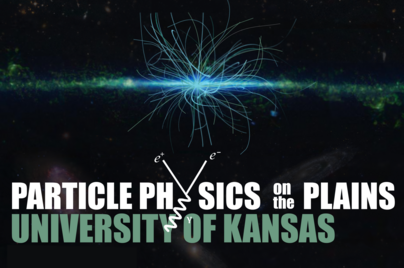Speaker
Description
Stochastic backgrounds of gravitational waves (GWs) from the pre-BBN era offer a unique opportunity to probe the universe beyond what has already been achieved with the Cosmic Microwave Background (CMB). If the source is short in duration, the low-frequency tail of the resulting GW spectrum follows a universal frequency scaling dependent on the equation of state of the universe when modes enter the horizon. The distortion of the equation of state due to massive particles becoming non-relativistic can lead to an observable dip in the GW spectrum. This effect is illustrated by considering a first-order chiral symmetry breaking phase transition in the weak-confined Standard Model (WCSM). The model features a large number of pions and mostly elementary fermions with masses just below the critical temperature for the phase transition. These states lead to a 20% dip in the GW power. We also find potential sensitivity to the distortions in the spectrum to future GW detectors such as LISA, DECIGO, BBO, and $\mu\text{Ares}$.

